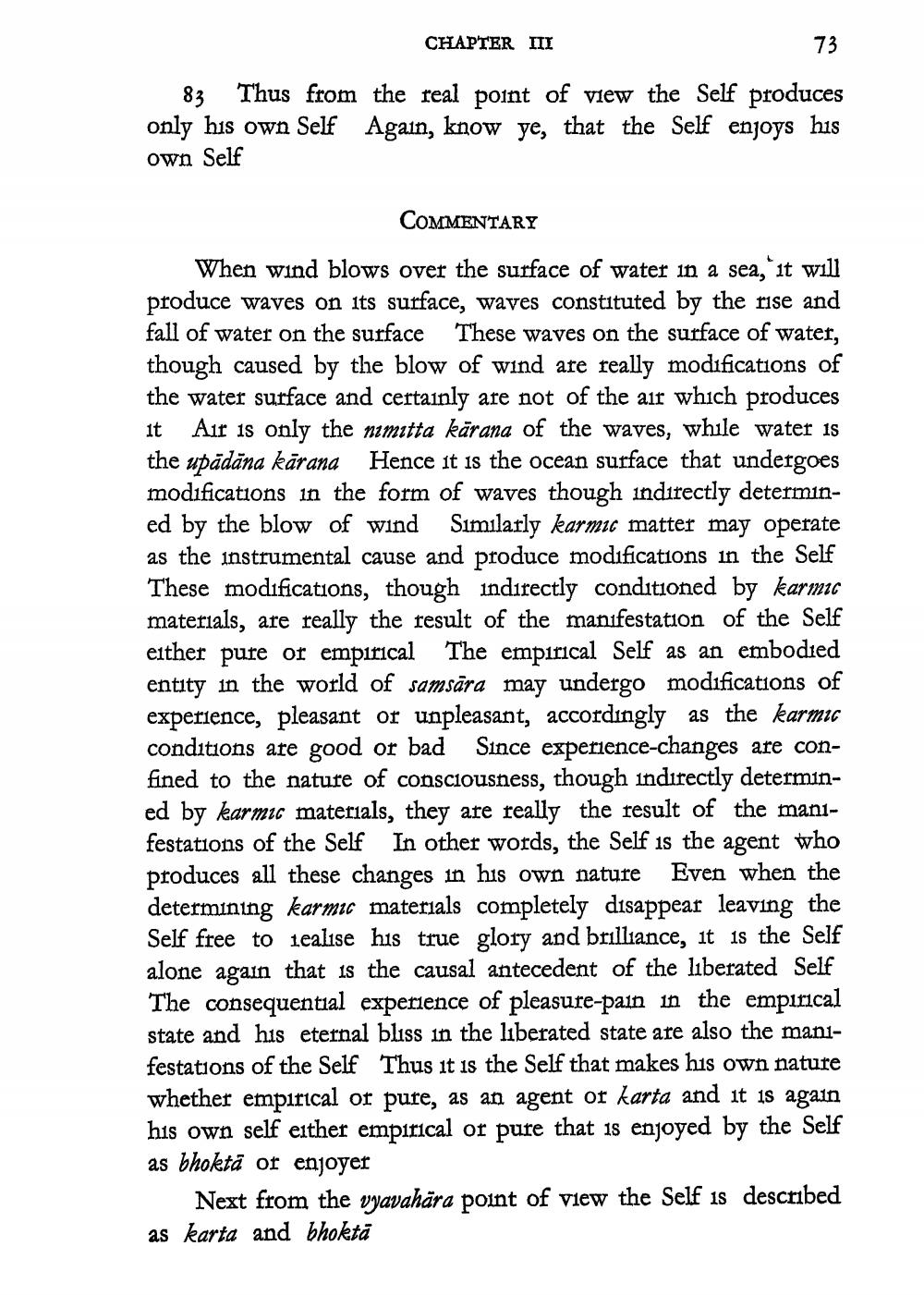________________
CHAPTER III
73
83 Thus from the real point of view the Self produces only his own Self Again, know ye, that the Self enjoys his own Self
COMMENTARY
When wind blows over the surface of water in a sea, it will produce waves on its surface, waves constituted by the rise and fall of water on the surface These waves on the surface of water, though caused by the blow of wind are really modifications of the water surface and certainly are not of the air which produces it Air is only the nimitta kärana of the waves, while water is the upādāna karana Hence it is the ocean surface that undergoes modifications in the form of waves though indirectly determined by the blow of wind Similarly karmic matter may operate as the instrumental cause and produce modifications in the Self These modifications, though indirectly conditioned by karmic materials, are really the result of the manifestation of the Self either pure or empirical The empirical Self as an embodied entity in the world of samsara may undergo modifications of experience, pleasant or unpleasant, accordingly as the karmic conditions are good or bad Since experience-changes are confined to the nature of consciousness, though indirectly determined by karmic materials, they are really the result of the manifestations of the Self In other words, the Self is the agent who produces all these changes in his own nature Even when the determining karmic materials completely disappear leaving the Self free to realise his true glory and brilliance, it is the Self alone again that is the causal antecedent of the liberated Self The consequential experience of pleasure-pain in the empirical state and his eternal bliss in the liberated state are also the manifestations of the Self Thus it is the Self that makes his own nature whether empirical or pure, as an agent or karta and it is again his own self either empirical or pure that is enjoyed by the Self as bhokta or enjoyer
Next from the vyavahara point of view the Self is described as karta and bhoktā




